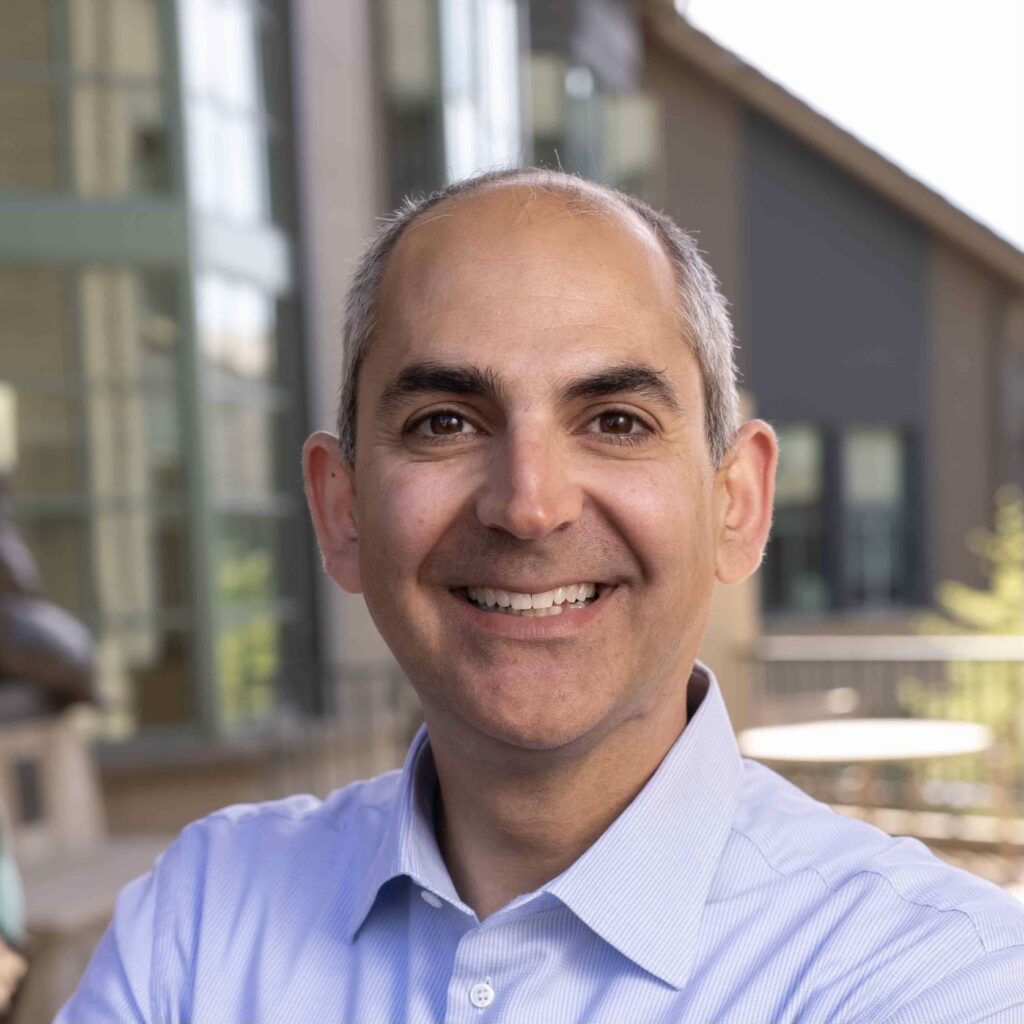23andMe’s new Chief Corporate Development Officer, Reza Afkhami took some time before starting in his new job to chat about his career, joining 23andMe, and his new role cultivating partnerships and collaborations for our therapeutics, research services and consumer divisions.
Reza comes to the job with more than two decades of experience in biotech corporate development. His last role was as the Senior Vice President for Corporate Development and Strategy at Global Blood Therapeutics, a biopharmaceutical company focused on innovative therapies for treating sickle cell disease. That company was purchased last year by Pfizer.

Before that, Reza was the Vice President of Corporate Development and Strategy at Surrozen. Surrozen is a biotechnology company focused on developing tissue-specific antibodies to create therapies for disease of the intestine, liver, retina, cornea, lung, kidney, cochlea, skin, pancreas, and central nervous system. His long and distinguished career also includes positions overseeing global commercial strategy and planning, other roles leading teams handling business development and market intelligence, as well as managing and supporting partnerships. His work has helped the companies he’s worked for grow from early-stage drug discovery through to fully integrated biotech companies.
Here at 23andMe he’ll lead our business development team, across our therapeutics, research services and consumer groups. Reza will be responsible for spearheading and driving a wide range of industry collaborations for 23andMe.
Here’s a little bit from our discussion with Reza. His responses have been edited for length.
1) You studied international economics at Georgetown and received an MBA from UC Berkeley. What drew you to a career in biotech?
While growing up in France at the end of the Cold War, I was exposed to multiple languages and cultures. Pursuing a career in foreign service would be a natural fit. However, getting exposed to government work and the less appealing aspects of politics at Georgetown changed that. I switched coursework to focus more on economics and finance and pursued internships with businesses rather than institutions.
I started my career in the early 1990s as the internet boom began. I eventually worked with a company that was taken over by a telecom company tied to that tech boom. It wasn’t a great experience, and I left to start an MBA program at UC Berkeley. Soon after I started that program, the company became embroiled in a scandal. Then 9/11 happened, and we had the dot-com bust and recession. I mention that because it changed what I wanted to do and how I looked at internet technology companies. Right then, I stumbled upon biotech, which felt like a breath of fresh air. These were brilliant people doing interesting things, all focused on developing drugs to help cure disease. My first job out of business school was with CV Therapeutics.
2) What will you be focused on at 23andMe?
I’ve spent two decades in biotech. The synergy between the consumer business, the research services, and the therapeutics groups attracted me to this position. They each offer the potential to develop different kinds of partnerships, and that’s appealing to me.
There is this potential of augmenting what 23andMe is already doing through collaborations and partnerships, whether on the consumer side by helping consumers get access to the kind of genetic information they can use to better their lives, or on the research side with all these incredible insights, or on the therapeutics side and leveraging all this data to develop new therapies.
The challenge is prioritizing what opportunities will be best for the company and our mission.
3) Does your new role differ from your past roles and responsibilities, if so how?
I have experience in B2B transactions, and the key to success is finding ways for both parties to win. When it comes to 23andMe’s consumer products, our research, and our therapeutics development there are different kinds of considerations for collaborations and partnership.
It will be fascinating and challenging. There’s a lot of potential and I think we will make a real difference in people’s lives.
4) What are you most excited about regarding 23andMe and what our Therapeutics team is doing?
23andMe’s unique advantage is our incredible database and our ability to use genetics to identify drug development targets. That’s very exciting.
Drug development takes a very long time, is expensive, and has a low success rate. The result is a lot of wasted time and money. However, if we start with a target that is validated using genetics, in that case, we have a much better chance for success. Using validation first gives us a better starting point for drug development. Improving the drug development process by even a few percentage points could save billions of dollars and, more importantly, improve the chances of finding new treatments for patients who need them. I’m excited about that.
5) You’ve spent a career in biotech and have a good grasp of the industry. Do you think the industry in general realizes that 23andMe is a full biotech company?
People in the industry don’t know the full extent of what 23andMe is capable of. I think many are even shocked by the size of our therapeutics team and that we’re currently working on so many programs in the preclinical stage. This lack of awareness around our therapeutics work is partly because 23andMe’s consumer brand is so strong that everything else we do is hidden behind that big veil.
There are some challenges there, and even skepticism, but that also presents an opportunity once potential partners and collaborators see what we can actually do.



